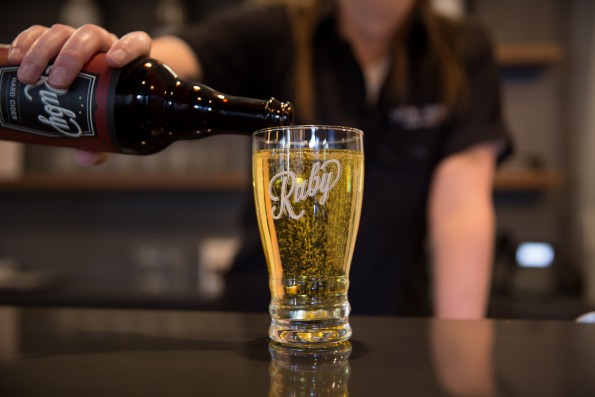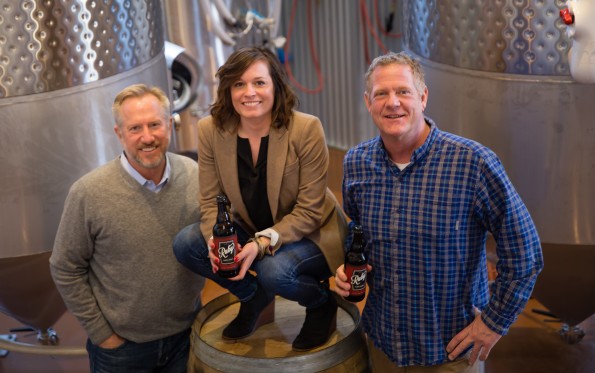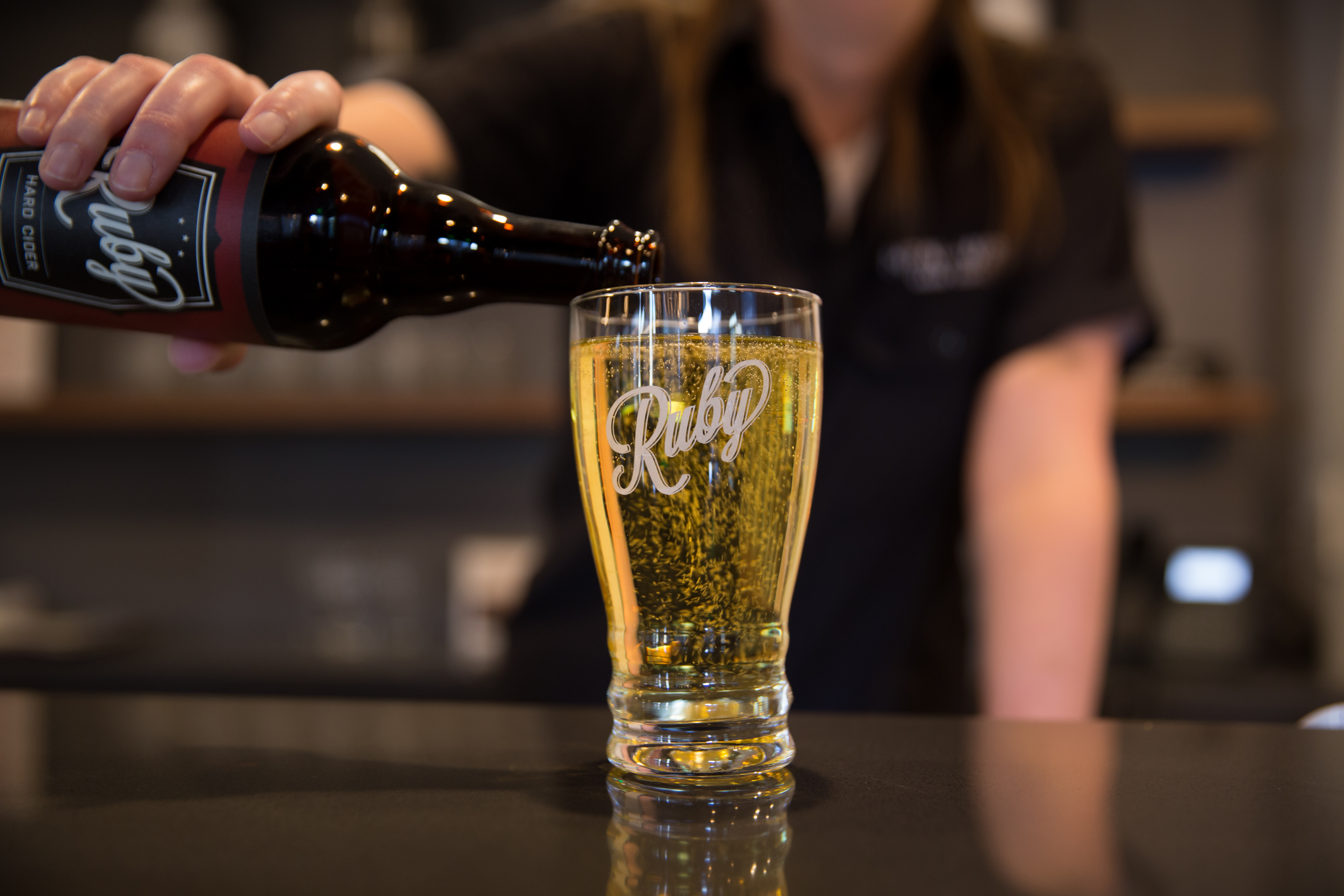
Hard apple cider once quenched the thirst of Americans for generations.
Before Prohibition started in 1920, hard apple cider, also known as apple jack, outsold beer as the go-to American beverage of choice. After Prohibition was repealed in 1933, the country’s taste shifted more toward beer, with hard cider being viewed as a European import. But Jennifer and Jeff Carleton, owners of the newly-established Mountain West Cider, hope to change that.
During an excursion to Ireland, the couple experienced the crisp taste of hard apple cider. Not an avid beer drinker, Jennifer found the difference refreshing. On the flight home, the couple read an in-flight magazine article on the growth of the American cider industry. They knew immediately that their home state of Utah would be the perfect place to introduce the product.

“We’re the first urban cidery in Utah,” Jennifer says. “Business has been booming and has exceeded our expectations.” As of February, Mountain West has been working to supply the state’s 32 liquor stores, selling out quickly in many locations.
To ensure quality, the Carletons searched nationwide for a hard cider maker. At the beginning of 2015, they found Pacific Northwest resident Joel Goodwillie, a man with 25 years experience in the winemaking industry. Goodwillie spent nearly a year developing their flagship label, Ruby.
“Ruby just came up with itself,” Goodwillie says. “We didn’t have to manipulate it. Everything is natural and traditional with no back flavoring. Hard apple cider in its purist form. In my experience, that’s a rarity.”
Perhaps that rarity stems from the Carletons’ dedication to keeping their product as locally sourced as possible. Currently, Mountain West purchases all of its apples from Santaquin orchards. They’ve recently overtaken food giants Smith’s and Harmons as the orchards’ top apple purchaser.
Even the names of their labels come from local inspiration. “All products are named after Utah canyons,” says Goodwillie. This month, they plan to release their 7 Mile label, a lighter cider with 5 percent ADB compared to 6.8 percent in Ruby.
“We hope to have four or five different drinks, but Ruby has been so successful we have a hard enough time keeping up with that demand,” say Jeff and Jennifer. You can taste Ruby in several restaurants and bars, such as The Bayou, Beerhive, The Garage, and Poplar Street. Business is projected to double this year, with the Carletons noting that cider is the fastest-growing alcoholic beverage in the industry. Located two buildings south of the Red Rock Beer Store, Mountain West Cider also serves as a downtown venue for parties and corporate events.
“The great thing about cider,” Goodwillie notes, “is its versatility. I haven’t found a good meal it doesn’t work with.”
Mountain West Cider is located at 425 N. 400 W. Open M-F, 11am-7pm; Sat 11am-5pm






